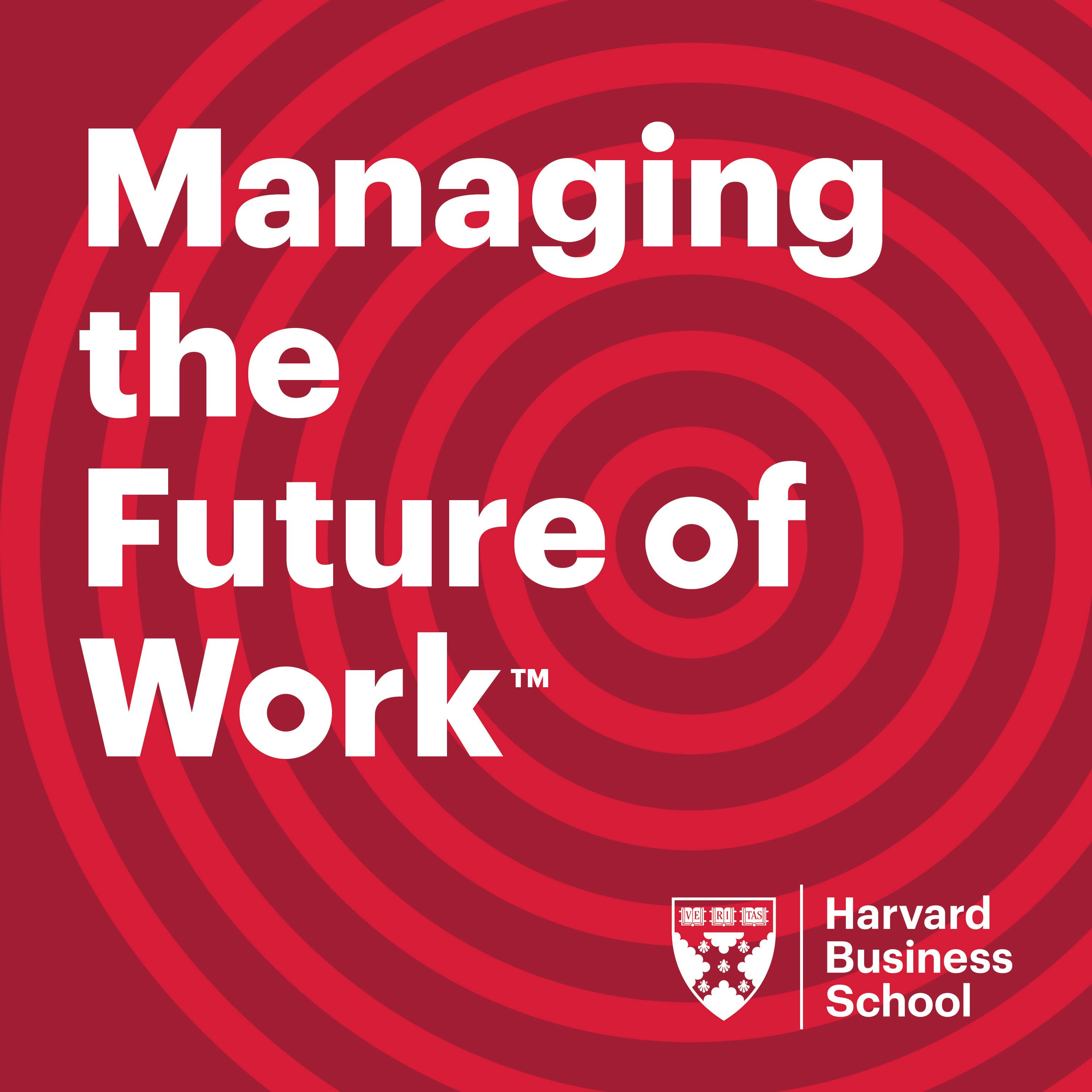

HBS Managing the Future of Work
Harvard Business School
Artificial intelligence. Robotics. The Gig Economy. Globalization. The world is changing at a dizzying pace in ways that will have a profound effect on the economy, jobs and the flow of talent. How will firms cope with the changes ahead and what steps do they need to take today? Each episode features faculty from the world’s leading business school interviewing CEOs, technologists and experts on the bleeding edge discussing how to survive and thrive by managing the future of work.
Episodes
Mentioned books

14 snips
Aug 13, 2025 • 43min
Redefining success: Harrison Keller on the Texas higher-ed model
Harrison Keller, the President of the University of North Texas and former Texas Commissioner of Higher Education, discusses Texas's innovative outcomes-based funding model for community colleges. He reveals how aligning education with workforce demands creates a competitive economic edge. The conversation also highlights the importance of experiential learning for students and the critical need for reskilling amid the rise of AI in the workforce. Keller emphasizes collaborative efforts among educators and employers to prepare for an evolving job landscape.

Jul 30, 2025 • 38min
BuildOps' Alok Chanani on rewiring commercial contracting
Alok Chanani, Co-founder and CEO of BuildOps, dives into the challenges faced by commercial contractors, including administrative burdens and the shortage of skilled technicians. He highlights how integrated operations apps and AI can enhance efficiency and improve job prospects within the industry. Alok also discusses the transition of veterans into entrepreneurship, showcasing their leadership skills. Additionally, he explores how advanced scheduling technologies are transforming operations, emphasizing the need for better training and career paths in the trades sector.

10 snips
Jul 16, 2025 • 36min
Cisco's alignment strategy: Coordinating workforce and operations
Join Francine Katsoudas, Cisco's EVP and Chief People Officer, who drives sustainability and governance, alongside Jeetu Patel, the President and Chief Product Officer focused on tech innovation. They delve into the crucial intersection of people and technology, especially during the pandemic. Discover how cross-functional collaboration fosters efficiency and creativity. The duo also discusses the growing influence of AI on workforce dynamics and the evolving role of leadership in nurturing agile cultures amidst rapid change.

11 snips
Jul 2, 2025 • 43min
Designing Equitable Workplaces
Iris Bohnet, a Professor of Public Policy at Harvard Kennedy School, and Siri Chilazi, a researcher and co-author of 'Make Work Fair', discuss the critical need for workplace equity. They dive into how data-driven strategies can transform hiring practices by promoting skill-based assessments over traditional degree requirements. The conversation highlights the benefits of flexible work environments for diverse groups and the importance of public policy in fostering inclusion. Together, they offer actionable insights for organizations striving for fairness in their practices.

Jun 18, 2025 • 37min
ETS’s Amit Sevak makes the case for continuous assessment
Amit Sevak, the CEO of ETS, leads innovations in workforce skills assessment and credentialing. He shares insights on the shift from traditional testing to continuous assessments, emphasizing AI's role in transforming educational benchmarks. Sevak reflects on his own path in merging business acumen with a mission for educational improvement. He also highlights the growing importance of skills-based credentials, advocating for equitable education that aligns with industry needs to better prepare students for an AI-driven workforce.

33 snips
Jun 4, 2025 • 30min
Vanguard's skills strategy for tech transformation
Nitin Tandon, Chief Information Officer at Vanguard, shares insights from his extensive background in technology and digital transformation. He discusses Vanguard's innovative approach to integrating AI and developing a global talent strategy, including new offices in India to tap into engineering talent. Tandon highlights the shift towards a people-centered tech transformation, the evolving role of the CIO, and the importance of adapting skills for a future driven by AI. The conversation emphasizes enhancing productivity while improving client outcomes through strategic data utilization.

13 snips
May 21, 2025 • 40min
Shake Shack’s test kitchen: Developing a good jobs and automation combo
Steph So, Chief Growth Officer at Shake Shack, shares her insights on how technology reshapes the dining experience. She discusses the impact of self-service kiosks on labor dynamics, emphasizing the balance between operational efficiency and the human touch. Alongside Chris Stanton from Harvard Business School, they explore employee engagement strategies in fast food, the evolution of customer interactions through innovative tech, and surprising employee preferences for more challenging roles, highlighting how these changes enhance guest experiences.

May 8, 2025 • 29min
Upwork’s Hayden Brown on bridging volatility with contingency
"Freelance by choice" can sound like a rationalization—or putting on a brave face—but has the contract labor market improved for white-collar workers, as more, particularly younger professionals, opt in? A look at the benefits for both sides of the bargain and how AI changes the calculus.

Apr 23, 2025 • 47min
ManpowerGroup’s Jonas Prising on the new global talent equation
Jonas Prising, Chairman and CEO of ManpowerGroup, dives into the evolving labor landscape filled with both opportunities and challenges. He discusses the rise of remote work, emphasizing the need for adaptability in talent management. Generational shifts demand flexibility in work environments. As AI transforms efficiency, he highlights the critical need for reskilling and upskilling to combat workforce disparities. Prising also touches on the global talent flow and the paradox of protectionism, underscoring the importance of inclusive hiring practices in today’s fragmented market.

Apr 9, 2025 • 34min
Redrawing the map to tech careers: Per Scholas CEO Plinio Ayala on skills, mobility, and AI
Plinio Ayala, CEO of Per Scholas, leads a nonprofit transforming tech training for underserved communities. He shares how AI is reshaping career pathways and emphasizes the need for both hard and soft skills to thrive in the evolving job market. The conversation covers the importance of addressing 'hidden workers,' advocating for skills-based hiring, and strategic partnerships that enhance curriculum and job placements. Ayala's vision for the future includes expanding access to tech careers, ensuring economic mobility for all.


